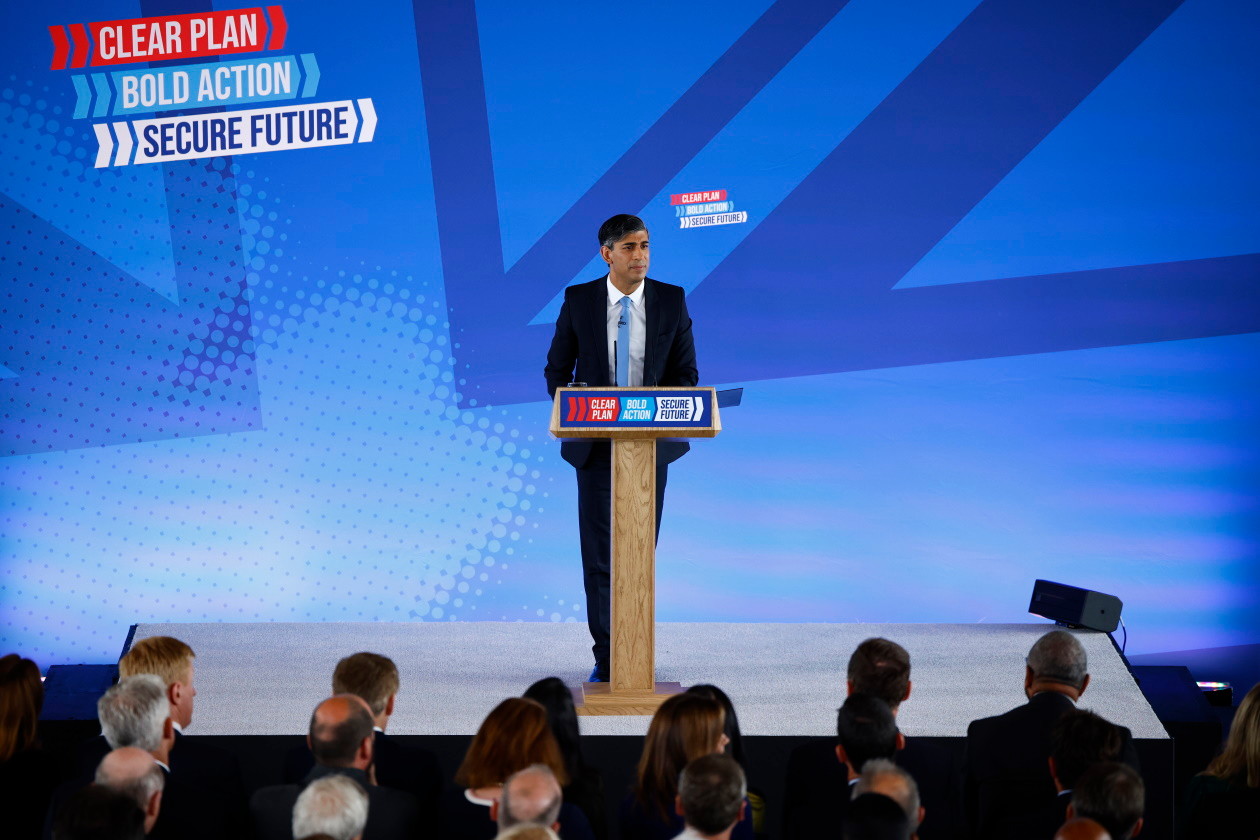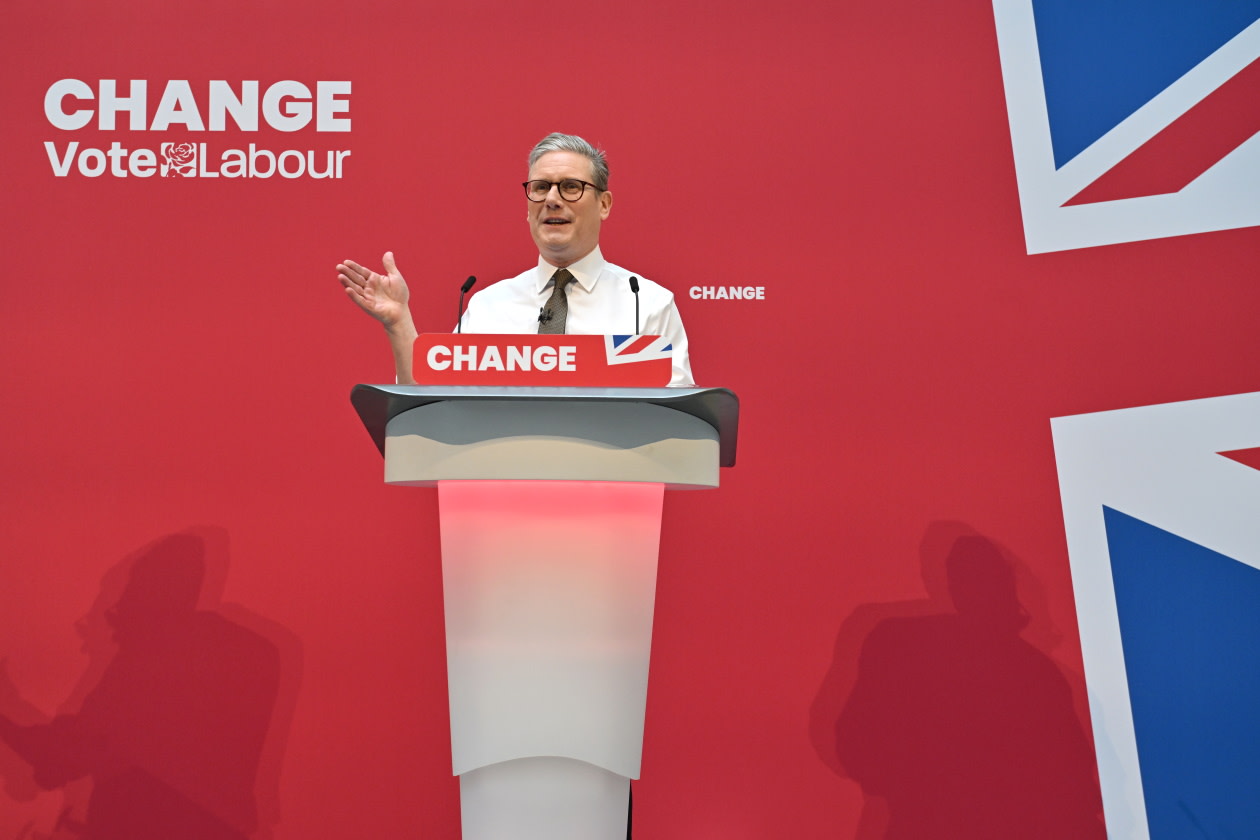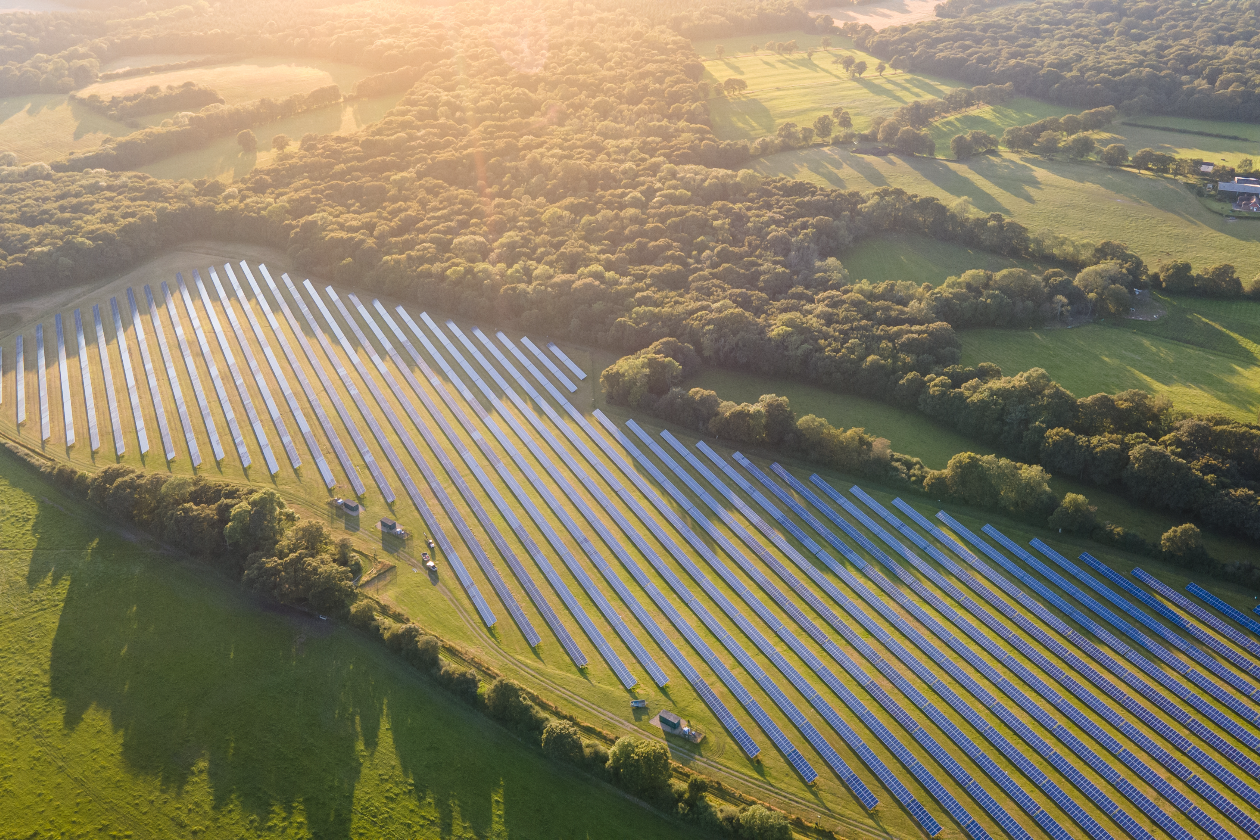On 4 July, the UK will head to the ballot box for the 2024 General Election.
With warnings from NASA to the Met Office that the planet is nearing critical tipping points, the next government will play a crucial role in steering us towards a sustainable future.
Both of the major parties might not agree on everything, but getting to net zero by 2050 is a shared objective.
Labour laid the gauntlet in 2008, making it a legal obligation for the UK to reduce emissions by 80% by 2050, with both parties supporting the proposal.
Theresa May upped the ante in 2019, increasing the target to 100%, or net zero, by 2050, and was backed by a thumping cross-party majority.
Both main parties agree on the destination, but the way we get there is set to be one of the most hotly contested areas of debate as we approach the election.
With that in mind, here are the two main parties’ plans, and how they could impact investors.
This isn’t personal advice. If you’re not sure an investment is right for you, ask for financial advice.
Sign up to our Editor’s Choice email and we’ll send you our top stories from the week, every Saturday morning – including all our latest insights on the 2024 General Election and what it means for your money.
What are the Conservatives promising?
The Conservative party has rowed back on some of its environmental commitments recently. They’ve emphasised that the net-zero transition shouldn’t impact living standards, and we should prioritise energy security.
They’ve pledged to continue licensing oil & gas production in the North Sea, which they believe will contribute to energy security while protecting jobs. They’ll retain the current windfall tax on oil & gas companies until 2028-29, unless prices fall back to normal sooner.
The party has promised to accelerate the rollout of renewables in the next parliament by trebling offshore wind capacity, building the first of two carbon-capture and storage facilities, and scaling up nuclear power.
They plan to back up renewables with new gas power stations, which will help provide power when the weather doesn’t boost renewable energy sources.
They’ve also announced plans to make sure the annual policy costs and levies on household energy bills are lower in each year of the next parliament than they were in 2023.

Other pledges include a commitment to implement a new import carbon-pricing mechanism on imports of steel, iron, aluminium, ceramics and cement.
This will mean countries with a lower or no carbon price will face a comparable carbon price to those goods produced in the UK.
This will reduce the risk of these industries being displaced by other countries which aren’t taking action on climate change. But it could also impact the competitiveness of companies that rely on these imports.
The Conservative party has also pledged to take a ‘pragmatic and proportionate approach to net zero’. This includes measures like reforming the Climate Change Committee, giving it an explicit mandate to consider cost to households and UK energy security in its future climate advice.
The party has also pledged to guarantee a vote in the next parliament on the adoption of any new net-zero target accompanied by proper consideration of the plans and policies required to meet the target.
What are Labour promising?
Labour’s flagship sustainability pledge is the creation of Great British Energy, a publicly-owned clean power company, set up with the aim to boost energy security and cut bills.
Great British Energy would help Labour achieve its goal of fully decarbonising the electricity grid by 2030.
They’ve said the plans would be paid for by increasing the windfall tax on oil & gas companies by 3%, extending until the end of the next parliament.
The party would also remove the investment incentive scheme, which currently allows oil & gas companies to avoid paying the windfall tax if they make certain investments in renewable energy.
The Labour party has also suggested it would apply automatic and severe fines for water companies that harm the environment and pollute our rivers. This would include new powers for the regulator to block bonuses until any shortcomings are addressed.

Increased regulatory scrutiny and the potential for severe financial penalties might introduce higher operational risks and potential costs, which could deter some investors.
Labour won’t approve any new projects in the North Sea, avoid granting new coal licenses and ban fracking for good.
Keir Starmer’s party will look to double the money set aside to insulate homes across the UK and reinstate a requirement for private rented properties to meet certain efficiency standards. Labour would also reinstate the 2030 ban on new petrol and diesel vehicle sales, which the Conservatives moved to 2035 last year.
Other pledges include support for a carbon border adjustment mechanism to help protect British industries during the transition to net zero. They also want to mandate UK-regulated financial institutions – including banks, asset managers, pension funds, and insurers – and FTSE 100 companies to develop and implement credible transition plans that align with the 1.5°C goal of the Paris Agreement.
Get our latest insights on what the General Election could mean for you and your money.
What commitments have the other political parties made?
While only two parties have a realistic chance of forming the next government, it's important to consider the views of other parties as well.
If no party secures a majority, these smaller parties could become crucial power brokers. Their representatives will also hold the government to account and contribute to important debates over the next five years.
The Liberal Democrats
The Liberal Democrats propose a 10-year emergency upgrade program to make homes warmer and cheaper to heat, focusing on free insulation and heat pumps for low-income households.
They aim to drive a rooftop solar revolution and make sure 90% of electricity is generated from renewables by 2030.
The party plans to appoint a Chief Secretary for Sustainability, establish a Net Zero Delivery Authority responsible for coordinating action across government departments, and empower local councils to deliver local net-zero strategies.
Other commitments include restoring the UK's role as a global climate leader, cutting greenhouse gas emissions to net zero by 2045, and planting 60 million trees every year to enhance biodiversity.
Reform UK
The Reform UK party plans to scrap net zero and related subsidies, which they believe will save the public sector over £30bn every year.
The party has also suggested ending renewable energy subsidies and fast-tracking North Sea gas & oil licences, alongside shale gas licenses for test sites.
The party supports developing new clean nuclear energy with Small Modular Reactors and increasing ethical UK lithium mining for electric batteries.
They also propose incentivising investment in combined cycle gas turbines, clean synthetic fuel and tidal power, as well as exploring clean coal mining.
The Green Party
The Green Party aims to achieve net-zero emissions more than a decade before the 2050 target, but they haven’t given a precise date.
They plan to generate 70% of electricity from wind power by 2030, along with increased investment in solar, energy storage, and community-owned energy projects.
The party would cancel recent oil & gas drilling licenses and remove related subsidies, while phasing out nuclear power.
To support the green economy, they propose investing £40bn every year, introducing a carbon tax, and establishing regional mutual banks to drive decarbonisation efforts.
They also propose bringing the railways, water companies and the ‘big five’ retail energy companies into public ownership.
The Scottish National Party (SNP)
The SNP say they will adopt an evidence-based approach to oil & gas, insisting that any further extraction must align with climate obligations and energy security considerations.
The party has committed to achieving net zero in Scotland by 2045 and supports a just transition for the North East's oil & gas-dependent region, and will lobby the Westminster government to match a £500mn aid fund.
The SNP opposes new nuclear power plants and aims to promote Scotland's hydrogen export potential.
They also intend to push for rapid progress on the Aberdeenshire-based Acorn carbon-capture project.
Plaid Cymru
Plaid Cymru emphasises the importance of tackling climate change equitably and justly for current and future generations, working towards a net zero Wales by 2035.
They promise significant investment in green jobs and transitioning to new construction methods.
The party supports increasing Air Passenger Duty and a kerosene tax for private jets, gaining full control over Wales's natural resources, and expanding national renewable energy company Ynni Cymru.
They would oppose new nuclear and fracking projects, and lobby the Westminster government to clear the coal tips in the Welsh valleys.
Plaid Cymru also calls for a long-term retrofitting plan to enhance energy efficiency and reduce carbon emissions in existing properties.
If you want to learn more about investing responsibly, explore our Responsible Investment hub.




